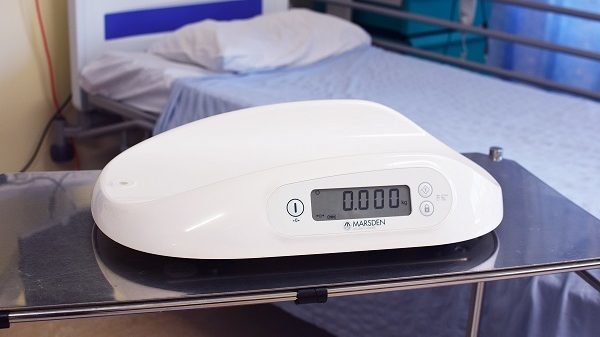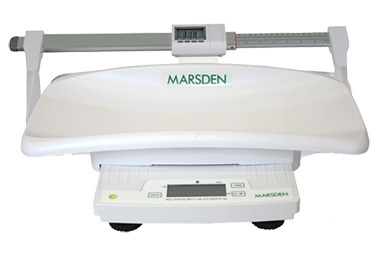The history of weighing babies

Pictured above: Marsden M-300 Portable Baby Scale.
From the moment they are born, weighing babies is an integral procedure in monitoring health. NICE guidelines state baby weighing should take place on day 1, day 5 and day 10 to help to ensure a healthy growth.
Weight is a crucial indicator of ill health at all ages, but this is especially true for babies. Despite this, weighing babies hasn't always been standard procedure.
This blog post will find out when it was introduced, why it was introduced and how the practice of weighing babies has changed over the years.
When did weighing of babies begin?
Florence Nightingale is widely regarded as the founder of modern nursing, but Notes on Nursing for the Labour Classes in 1861 does not mention the art of weighing - but it did become recognised not long after.
Throughout the 19th century, numerous studies recommended weighing babies. In 1826 the Boston Medical Intelligencer advised “physicians to record the birth of each infant, with weight and peculiarities of structure or condition”.
According to A History of Public Health by George Rosen, the practice of weighing babies was first introduced in 1878 by Freidrich Ahlfeld.
By the 1890’s baby weighing was gaining acceptance. Dr Mary Putnam Jacobi explained that “abnormal irregularities” of weight can indicate malnutrition and thus “a good balance used for weighing a child should be found in every well-appointed nursery.”
In Practical Midwifery (1892) Dr Edward Reynolds stated, “Nothing is more important in the routine care of infancy than the daily weighing of the child.”
What does modern weighing look like?
Medical baby weighing has changed drastically since it was first introduced 140 years ago.
All baby scales used in medical practices must be Class III Approved, and only scales with specific accuracies can be used for purposes such as recording birthweight and measuring weight for critical treatment.
There are also best practices to follow for the weighing processes, including how to keep the scale hygienic and ensuring weight readings are accurate. More is explained in this white paper.
The Marsden M-300 is a one piece baby scale ideal for weighing the smallest of babies with graduations to 2g. It features a large, bright display and is portable and battery powered.

The Marsden M-400-80D, pictured above, features a height measure as well as a slide on/off baby tray, which reveals a stand-on platform beneath for toddlers.
Related Products
Further Reading
Digital Weighing Scales For Home Use
Professional Baby Scales for hospitals, GPs, midwives
For more information about any of our scales for weighing babies, call 01709 364296 or contact us.